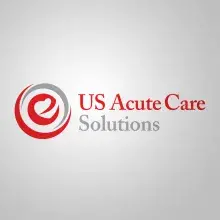What to Consider When A Huge Publicly Traded Company Buys Your Emergency Group
Successful hospital leaders are masters at managing change. But there’s a difference between change you can foresee (bundled payments, EHR implementations, declining reimbursements, CINs) and change that’s unexpected.
As the healthcare industry gravitates toward consolidation, large publicly owned companies are acquiring smaller physician groups at a rapid pace. If your emergency group experiences a merger, successfully managing that transition requires strategy and finesse.
Hospital leaders who suddenly find themselves with a new, managing partner should consider the following:
1. Alignment
The new physicians group is sure to have a strategy, but the question is whether or not that strategy aligns with your goals and standards for patient care. Start the discussion early so that everyone understands the direction you’re trying to go.
2. Commitment to Quality
Consolidation amongst physicians groups is hardly ever a decision about quality, but rather one of market forces. Of course everyone claims to be all about quality, but there are often disconnects between the marketing and the reality. A good practice is to do some due diligence and ask to see some solid, empirical data on the quality metrics most important to you.
3. Cultural Fit
There are pros and cons to partnering with a large, national group, but one thing is for sure: there will be a shift in corporate culture if your previous group was a smaller, regional player. Large groups will bring certain stakeholders (often shareholders), processes and ways of communicating that are different. It is important to consider whether the new way of doing business improves or degrades hospital services.
4. Attrition and Retention
In any transition, your staff will use this as a time to reevaluate their own career paths. Some will leave and some will stay, and all of them will have questions about what will change under the new group. This is a time when over-communication will reduce stress and help to retain your best people. It’s also a good time to identify those most impacted across the entire organization, seek their input and ensure their concerns are being considered.
If it’s clear your new hospital partner isn’t a good fit, explore your options. At US Acute Care Solutions, we believe the physician-owned practice model is the best and has positioned us to stay competitive among larger, publicly owned groups. Our clinical professionals maintain their professional autonomy, while also making top-level practice decisions. If your emergency practice is facing an unexpected buyout, please reach out to talk to a member of our team.

